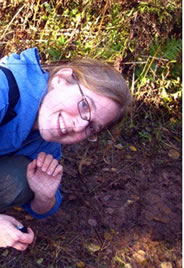Urban gardens and conservation
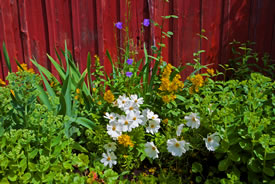
Flowerbed (Photo by Bengt Nyman, Wikimedia Commons)
Usually when you hear about land conservation, it usually refers to the conservation of places that are still “wild” — meaning they haven’t undergone any large-scale urbanization. However, we often forget about urban conservation — in city green spaces and private gardens. While they may be often overlooked, these urban green spaces can provide excellent habitat and resources for wildlife, insects and plants that are more adapted to city living. In fact, urban green spaces can occasionally be just as productive as natural areas: a year-long study of urban parks in San Francisco found that they supported (on average) higher numbers of bumblebees than two outlying natural areas nearby.
Urban green space can also impact our quality of life, health, and well-being. This is well documented in Roger Ulrich’s 1984 study, which saw improved recovery times of patients who could see trees through their room’s window, versus patients who only saw a brick wall. Our green oases maintain a critical connection between urban dwellers and natural places.
I have been personally fortunate to experience the benefits of urban gardens and green public spaces. I grew up on the outskirts of a small Maritime city. We seemed to be far away from the noise, light and crowds, but our house was on actually a small lot with close-by neighbours — a far cry from true "wilderness."
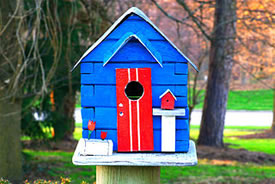
Birdhouse (Photo by Kamir, Wikimedia Commons)
My dad, however, is a talented landscaper and a lover of all natural things. He seemed to instinctively know the best timing and conditions for every tree, shrub and flower he ever planted. Under his expert care, our little utopia grew. As the trees grew, they provided more shade and shelter, and soon, small songbirds began frequenting their branches. My father immediately went out and bought a few small bird feeders. Over the years, other critters discovered this little paradise: voles, squirrels, bugs, bees, butterflies, spiders and hawks.
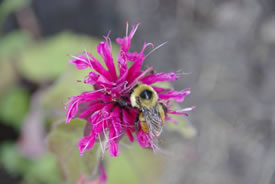
Bee balm (Photo by NCC)
Every time my father discovers a new creature in our yard, he finds a way to encourage them stay — whether that by adding a new shrub to act as a home to a family of robins, or planting a bulb with a fragrance and vibrancy so as to attract bees and butterflies.
Our personal green spaces may not seem to have the largest of roles in the overall picture of land conservation, but it makes a big difference to the wildlife that depend on them for food and shelter. It also helps us maintain our instinctual connection to nature, from earnest adventurers, to young children, to those who have limited mobility.
Want to create your own backyard oasis?
I am sure that I have convinced you to start creating your own backyard oasis. But where to begin?
This is where companies like Veseys Seeds come in. They provide the tools necessary to create your own green space and your own memories, while contributing to urban conservation.
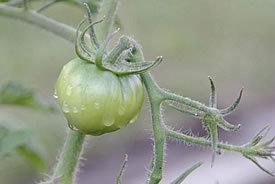
Tomatoes (Photo by CBT/NCC)
In addition, Veseys support the local work of charities like the Nature Conservancy of Canada, and they are vastly knowledgeable in their business. They supply an array of fruit, vegetable and flower seeds and bulbs, and if you have any questions or concerns about a particular plant, they are well staffed to steer you towards the right decision for your garden or green space.
There’s nothing more satisfying than growing your own groceries!
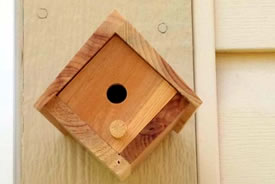
Bee homes come in all shapes and sizes. (Photo by NCC)
Veseys also sells a line of pollinator and insect predator homes to encourage pollinators and predator insects to visit your garden. Pollinators such as bees, flies and butterflies are crucial for both native biodiversity and human economics, because of their role in pollination, leading to the production of many of the food and vegetables that we eat.
Pollinators also play an important role in increasing the genetic diversity in flowering plants (including agricultural species).
Predator insects are important for keeping pest insect populations in check and are a natural alternative to pesticides. Both groups should be a welcome addition to any garden!
About Veseys Seeds
Veseys Seeds is the country’s leading mail order garden supply shop, so even if you don’t live on Prince Edward Island, where the company is based, you can still request a catalogue and get started on your own urban garden or order online.
My parents had always dreamed of raising their family near big, natural spaces. When that didn’t happen, they created their own. Even if you’ve only got a small backyard, you can still make a big impact for conservation and biodiversity.

